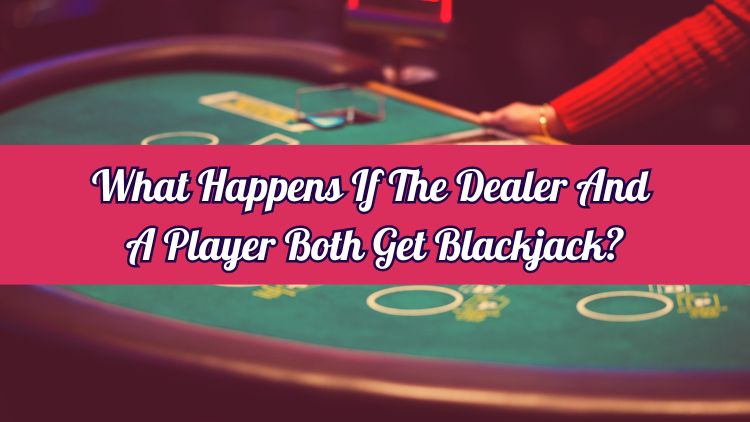
Blackjack is a popular card game where the goal is to have a hand value as close to 21 as possible without going over. Players compete against the dealer rather than each other.
Sometimes, both the player and the dealer might get a Blackjack. This situation can be a bit tricky to understand.
So, what happens next? Well, it's called a "push" or a "tie". This means that no one wins or loses. The player's bet is simply returned, and they get to keep their money for the next round.
In this blog post, we will explain what a push means and what it means for the player and dealer. Stay tuned to learn more.
Should The Player Take Even Money?
When the dealer shows an Ace and the player has Blackjack, the dealer may offer "even money". Even money is a way for the player to avoid the risk of a tie by accepting a guaranteed 1:1 payout.
For example, if the player bets £10, they will win £10 if they take even money, no matter what the dealer has.
If the player refuses even money and the dealer also has Blackjack, it results in a tie, and the player's bet is simply returned with no additional winnings.
But if the dealer does not have Blackjack, the player wins at the usual 3:2 payout. For instance, if they bet £10, they will then win £15.
Taking even money ensures a smaller but guaranteed win. However, it takes away the potential for a bigger win. Keep these factors in mind to make the best choice for you.
Who Wins In Blackjack When You Tie With The Dealer?
In Blackjack, a tie between the player and the dealer is known as a "push". When a push happens, neither the player nor the dealer wins. The result is neutral.
The player's bet is returned to them. This means they do not lose their money, but they also don't win any additional amount.
For example, if the player bets £10 and ties with the dealer, they get their £10 bet back. It's like the round never happened. The player can use the same money to place a new bet in the next round if they choose.
A push keeps the game fair and resolves the issue of the player not having lost but also not having won, so they get to keep playing without any loss in that round.
What Happens When You And The Dealer Bust In Blackjack?
In Blackjack, "busting" means that the total value of a hand exceeds 21. A bust results in an automatic loss.
But what if both you and the dealer bust? In this case, the result is simple: the player loses. If both sides go over 21, the house rules favour the dealer.
Even if the dealer busts after you do, the player's bust still results in a loss. This is because the dealer goes last, so if the player busts on their turn, they are already out of the game and lost their bet by the time it gets to the dealer's turn.
The dealer only plays their turn against players who are still in the game - i.e. haven't gone bust.
For example, if you end up with a total hand value of 23 on your turn, you have gone bust, and you lose your bet there and then. Even if the dealer ends up with 24 or any other value over 21 when it gets to their turn, you still lose because you are already out of the round for having busted first.
This rule highlights the importance of managing your hand wisely. Knowing when it’s appropriate to hit or stand can help avoid busting and, therefore, losing the game. Remember to always play responsibly by sticking to your budget.
*All values (Bet Levels, Maximum Wins, etc.) mentioned in relation to this game are subject to change at any time. Game features mentioned may not be available in some jurisdictions.
